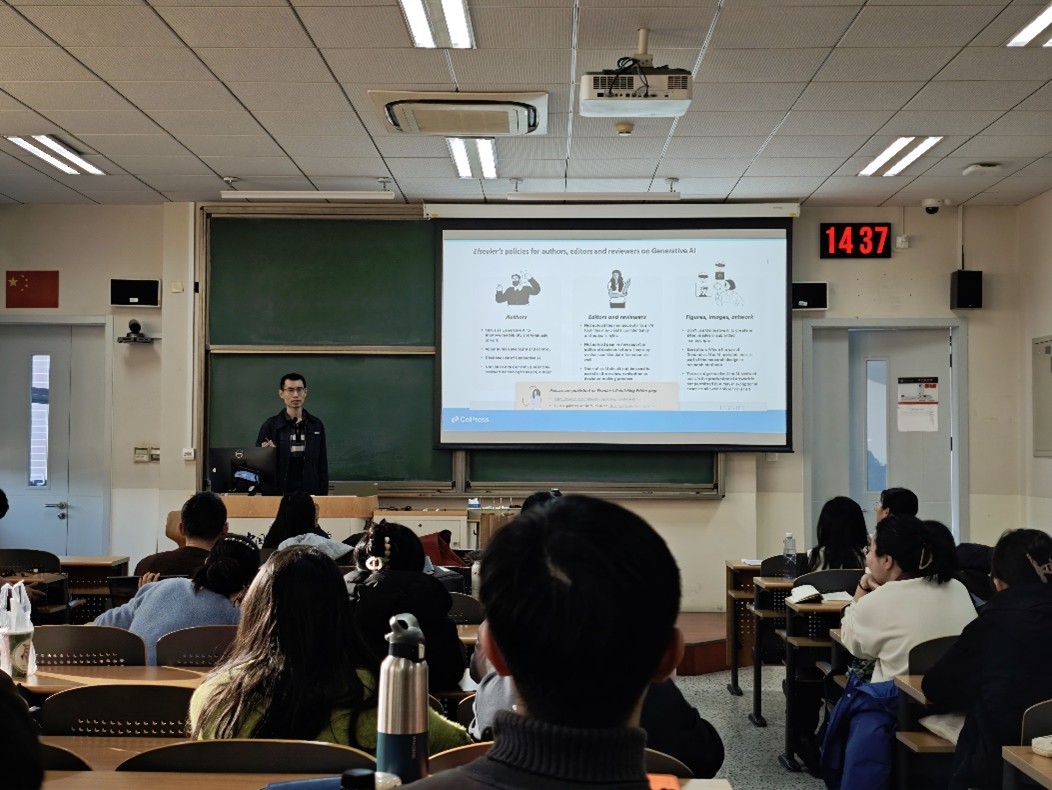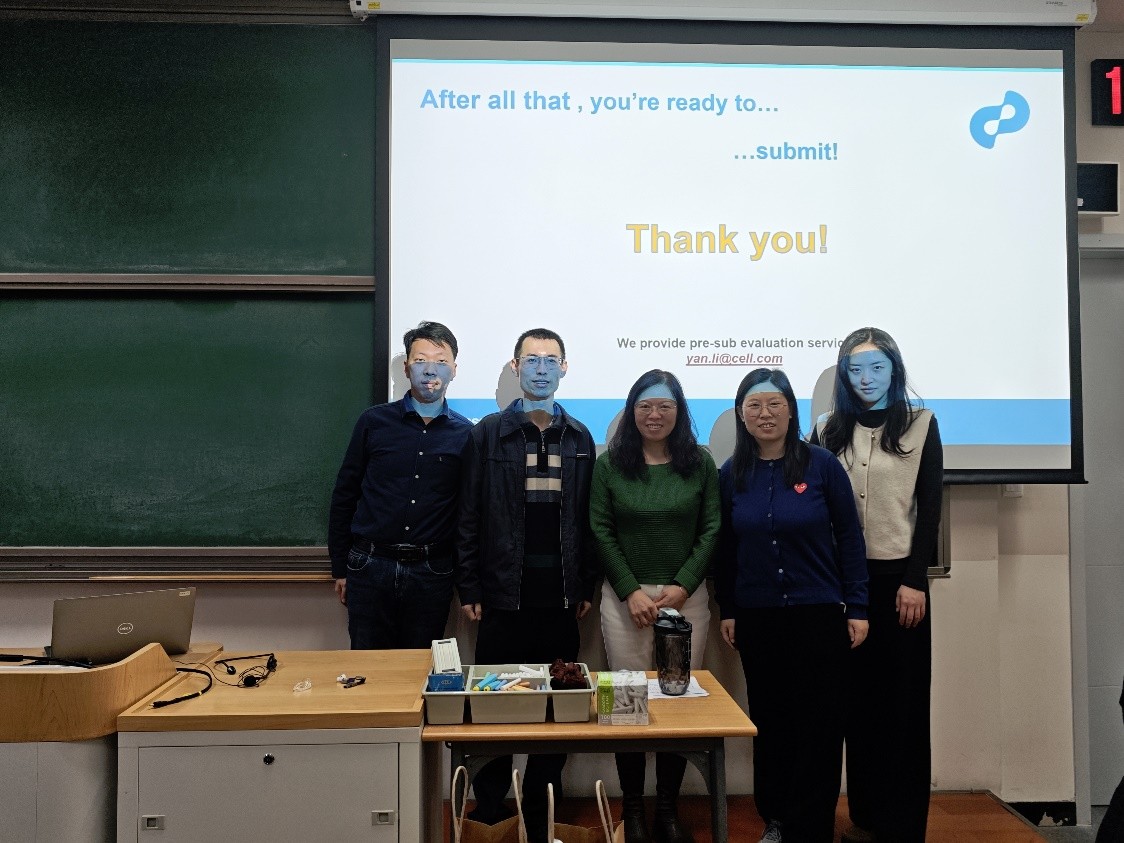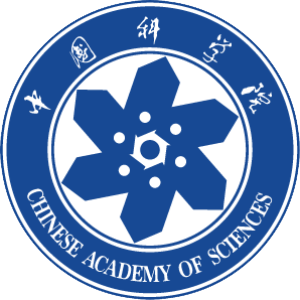On December 23, 2024, at 2:00 PM, Dr. Li Yan from Cell Press was invited by Professor Huang Hui to give a lecture on the topic "Publishing in Cell Press Physical Science Journals" at the University of Chinese Academy of Sciences. The lecture took place in Room 305 of Teaching Building 1.
Dr. Li Yan is a scientific editor at Cell Press, currently working for Matter, a flagship journal in materials science, and Cell Reports Physical Science, an open-access journal in physical science. He graduated with a bachelor's degree from Tianjin University and obtained his Ph.D. from the Department of Chemistry at Tsinghua University. He has also conducted postdoctoral research at the University of Houston and Wageningen University. Before joining Cell Press, Dr. Li worked as a journal editor at Wiley Publishing for several years.

The lecture began with an introduction to the founding and development of Cell Press, followed by an overview of the major journals published by Cell Press, including Cell, Chem, Joule, Matter, Cell Reports Physical Science, and Device. Special emphasis was placed on Matter, a flagship journal in materials science, and Cell Reports Physical Science, an open-access journal that has gained widespread attention and recognition. This helped the audience better understand the unique characteristics of each of the publisher's journals.
Next, Dr. Li outlined the structure of a research paper and provided specific guidance on what content should be included in each section. Through a Q&A format, Dr. Li effectively addressed common challenges in ensuring that the content of a paper aligns with its theme.

Dr. Li also gave two counterexamples to illustrate how to correctly and effectively use paper titles and figures to present research results to the readers. Additionally, Dr. Li shared his views on current trends such as the use of AI for paper editing and appealed to the audience to use generative AI tools correctly and responsibly to assist with paper writing. He provided practical methods that would be helpful for writing and editing papers in the future.

Finally, Dr. Li discussed important principles for responding to reviewer comments after manuscript submission and summarized key issues to consider during the submission process. This sparked a lively discussion among the faculty and students.

